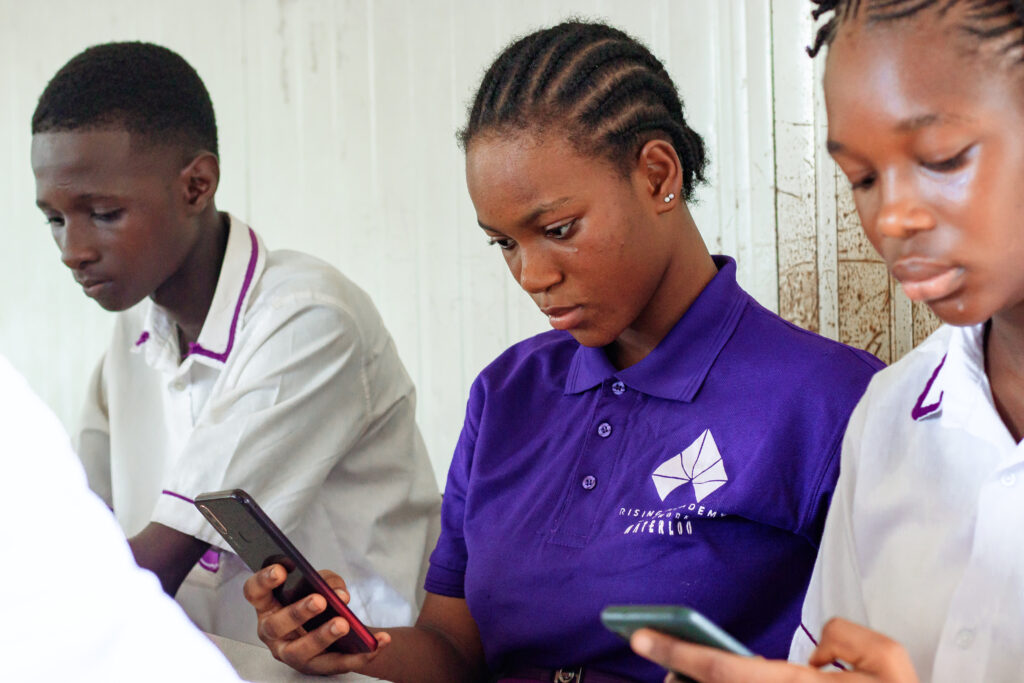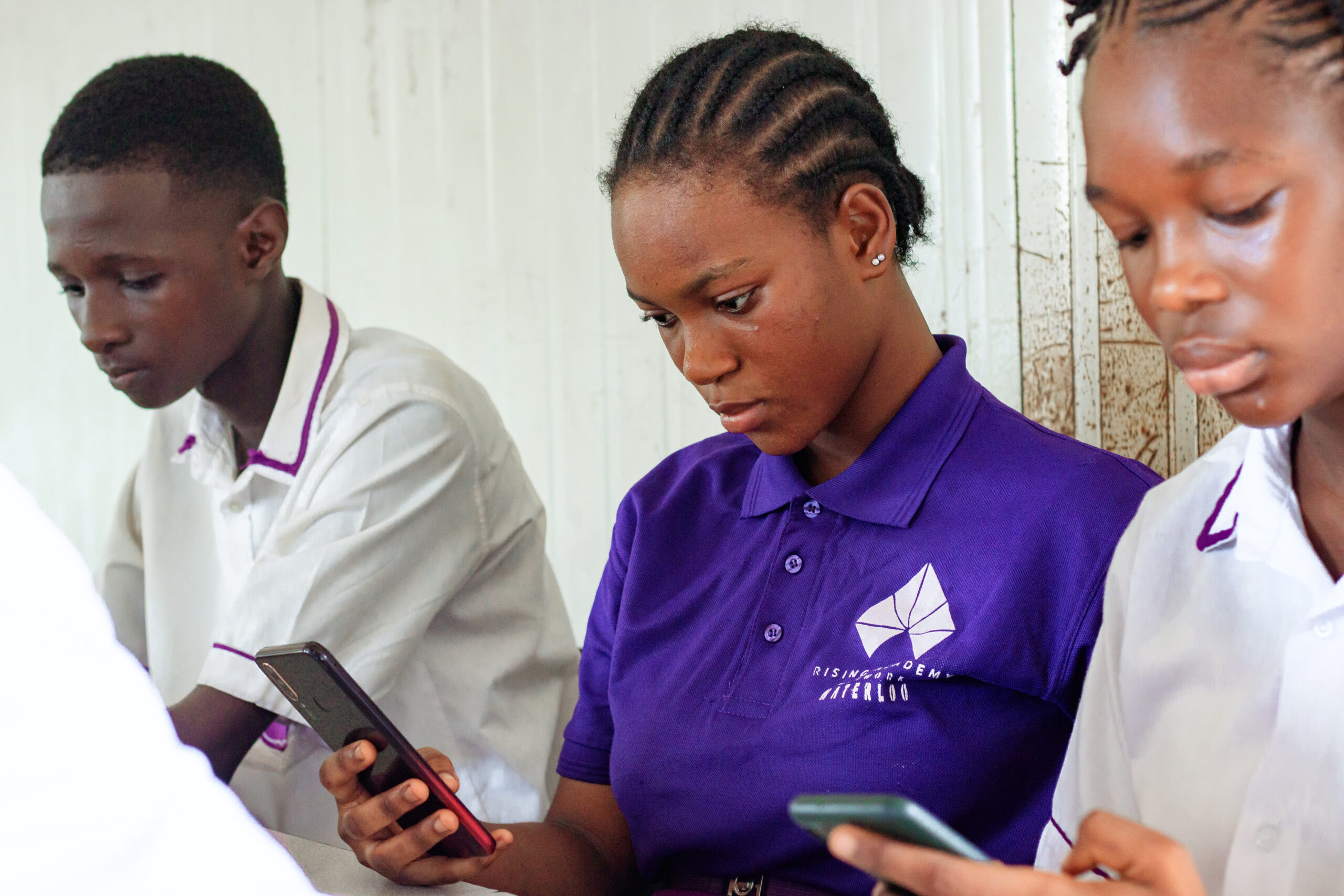Research
Rapid experimentation and evaluation is a pillar of the LEVI model. Teams and hubs conduct rigorous research to shed light on how advances in AI are impacting real-world classrooms. Through rapid trialing and shared expertise, teams refine their interventions, strengthen study design, and produce evidence on instruction, learning, and engagement. A commitment to public goods ensures this research is accessible and shared broadly with the education community.
- Eedi, Rising Academy
- | LEVI Math
- November 28, 2025 | Eedi, Google, LearnLM Team
- Eedi
- | LEVI Math
- November 7, 2025 | Emma Dobson, Wayne Harrison, Steve Higgins, Rahil Khowaja, Germaine Uwimpuhwe
- Rising Academy, Rori
- | LEVI Math
- November 1, 2025 | Zachary Levonian, Owen Henkel, Chenglu Li, Millie-Ellen Postle
- Carnegie Mellon University
- | LEVI Math
- July 1, 2025 | Ashish Gurung, Vincent Aleven, Lee Branstetter, Emma Brunskill, Shivang Gupta, Jordan Gutterman, Alex Houk, Kenneth Koedinger, Jionghao Lin, Danielle R Thomas
- Eedi
- | LEVI Math
- December 12, 2024 | Alexander Scarlatos, Digory Smith, Simon Woodhead, and Andrew Lan
- Florida
- | LEVI Math
- November 28, 2024 | British Journal of Educational Technology
- Rori, University of Florida
- | LEVI Math
- August 26, 2024 | Yukyeong Song, Jinhee Kim, Zifeng Liu, Chenglu Li, Wanli Xing
- J-PAL North America, Rising Academy, Rori, University of Oxford
- | LEVI Math
- May 5, 2024 | Owen Henkel , Hannah Horne-Robinson , Nessie Kozhakhmetova, Amanda Lee
- Eedi
- | LEVI Math
- May 1, 2024 | Jaewook Lee, Digory Smith, Simon Woodhead, Andrew Lan
- Carnegie Mellon University
- | LEVI Math
- April 8, 2024 | Vincent Aleven, Erin Gatz, Shivang Gupta, Kenneth R. Koedinger, Danielle R. Thomas

AI Tutoring Can Safely And Effectively Support Students: An Exploratory RCT In UK Classrooms
Eedi, Google, LearnLM Team
November 28, 2025

A Study To Evaluate The Effectiveness Of Eedi On Raising Attainment In Mathematics At KS3 (Year 7)
Emma Dobson, Wayne Harrison, Steve Higgins, Rahil Khowaja, Germaine Uwimpuhwe
November 7, 2025

Designing Safe And Relevant Generative Chats For Math Learning In Intelligent Tutoring Systems
Zachary Levonian, Owen Henkel, Chenglu Li, Millie-Ellen Postle
November 1, 2025

Improving Hybrid Human-AI Tutoring By Differentiating The Human Tutor’s Role Based On Student Need
Ashish Gurung, Vincent Aleven, Lee Branstetter, Emma Brunskill, Shivang Gupta, Jordan Gutterman, Alex Houk, Kenneth Koedinger, Jionghao Lin, Danielle R Thomas
July 1, 2025

Improving The Validity Of Automatically Generated Feedback Via Reinforcement Learning
Alexander Scarlatos, Digory Smith, Simon Woodhead, and Andrew Lan
December 12, 2024

Students’ Perceived Roles, Opportunities, And Challenges Of A Generative AI-Powered Teachable Agent: A Case Of Middle School Math Class
Yukyeong Song, Jinhee Kim, Zifeng Liu, Chenglu Li, Wanli Xing
August 26, 2024

Effective And Scalable Math Support: Experimental Evidence On The Impact Of An AI- Math Tutor In Ghana
Owen Henkel , Hannah Horne-Robinson , Nessie Kozhakhmetova, Amanda Lee
May 5, 2024

Math Multiple Choice Question Generation Via Human-Large Language Model Collaboration
Jaewook Lee, Digory Smith, Simon Woodhead, Andrew Lan
May 1, 2024

The Neglected 15%: Positive Effects Of Hybrid Human-AI Tutoring Among Students With Disabilities
Vincent Aleven, Erin Gatz, Shivang Gupta, Kenneth R. Koedinger, Danielle R. Thomas
April 8, 2024

Analyzing Student Attention And Acceptance Of Conversational AI For Math Learning: Insights From A Randomized Controlled Trial
Chenglu Li, Wangda Zhu, Wanli Xing, Rui Guo
March 18, 2024

Automated Feedback For Student Math Responses Based On Multi-Modality And Fine-Tuning
Hai Li, Chenglu Li, Wanli Xing, Sami Baral, Neil Heffernen
March 18, 2024

Retrieval-Augmented Generation To Improve Math Question-Answering: Trade-Offs Between Groundedness And Human Preference
Zachary Levonian, Chenglu Li, Wangda Zhu, Anoushka Gade, Owen Henkel, Millie-Ellen Postle, Wanli Xing
November 11, 2023

Rewriting Math Word Problems With Large Language Models
Kole Norberg, Husni Almoubayyed, Stephen E. Fancsali, Logan De Ley, Kyle Weldon, April Murphy, and Steve Ritter
May 6, 2023

Scenario-Based Training And On-The-Job Support For Equitable Mentoring
Danielle R. Chine, Pallavi Chhabra, Adetunji Adeniran, Joseph Kopko, Cindy Tipper, Shivang Gupta, Kenneth R. Koedinger
December 1, 2022

Development Of Scenario-Based Mentor Lessons
Danielle R. Chine, Pallavi Chhabra, Adetunji Adeniran, Shivang Gupta, Kenneth R. Koedinger
June 1, 2022

An Evaluation Of Perceptions Regarding Mentor Competencies For Technology-Based Personalized Learning
Pallavi Chhabra, Danielle R. Chine, Adetunji Adeniran, Shivang Gupta, Kenneth R. Koedinger
April 11, 2022

Computer-Supported Human Mentoring
Peter Schaldenbrand, Nikki G. Lobczowski, J. Elizabeth Richey, Shivang Gupta, Elizabeth A. McLaughlin, Adetunji Adeniran, and Kenneth R. Koedinger
June 1, 2021









